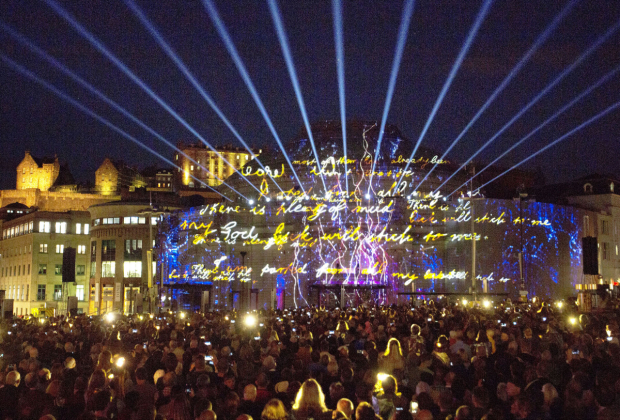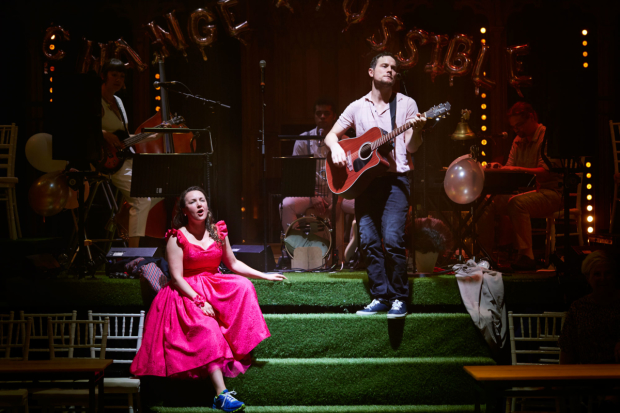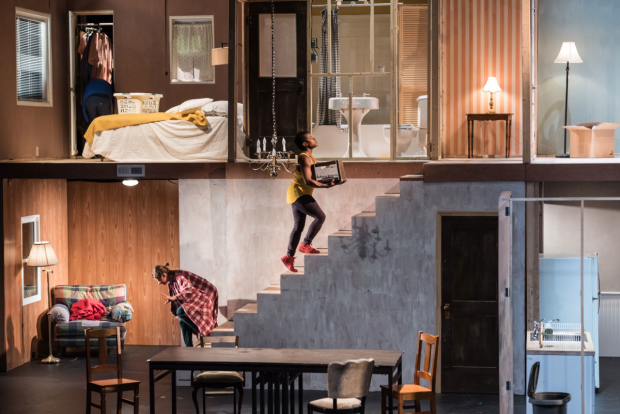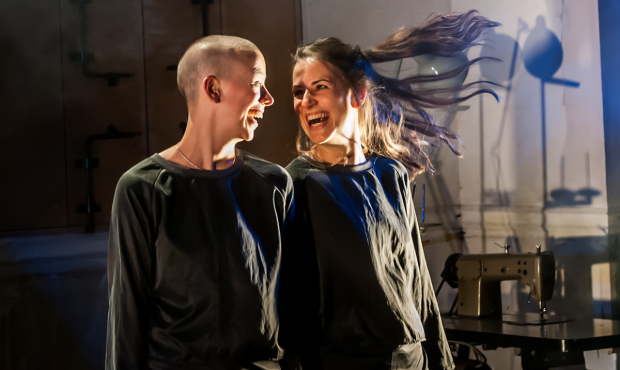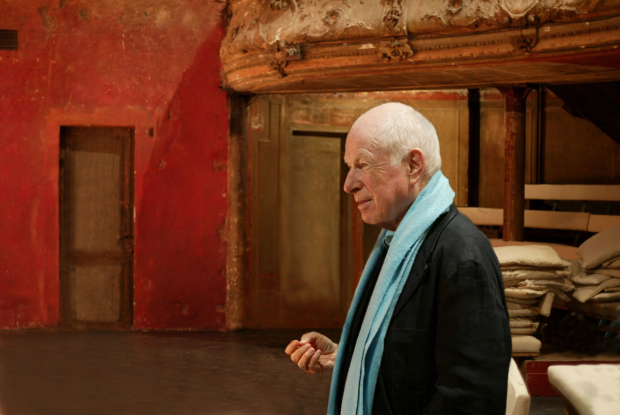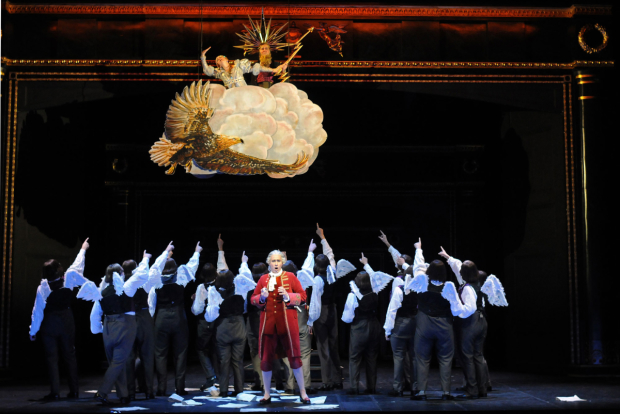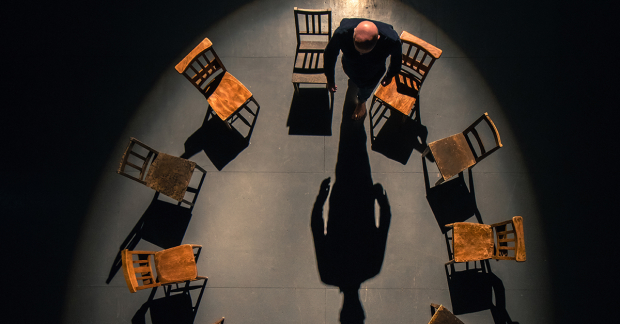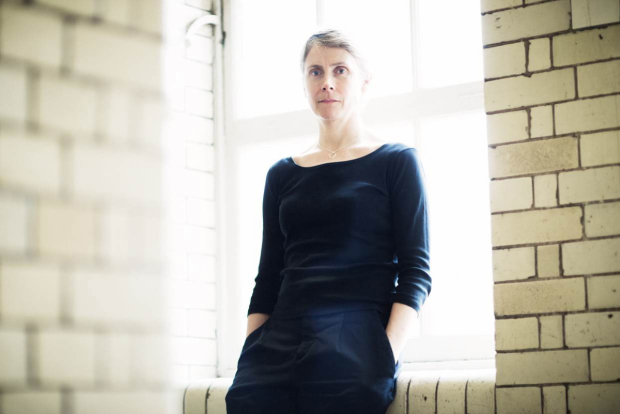Review: La Maladie de la Mort (Lyceum Theatre)
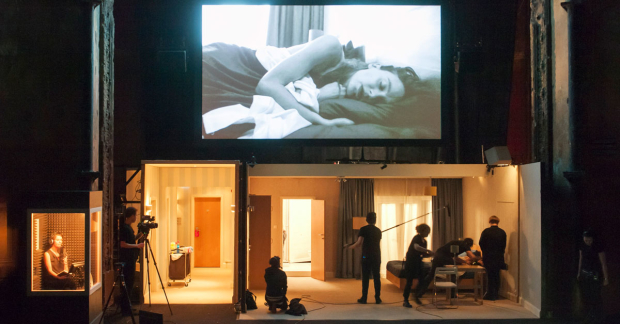
© Stephen Cummiskey
In Marguerite Duras' novella La Maladie de la Mort, published in 1982, a man pays a woman to submit to his will over several nights. In dominating her, screwing her, interrogating her and scrutinising her sleeping body, he tries – desperately – to find some semblance of feeling; anything to stave off a deep-set malaise that she dubs "la maladie de la mort" – the sickness of death.
Alice Birch's stage adaptation, staged as "live cinema" by Katie Mitchell, lets us see things from her side. This man's fantasy, his experiment, is her employment, perhaps even her everyday. Outside the door of his budget hotel room, she slips off her trainers and slides into stilettos – an action every working woman will recognise. Once inside, she follows his every instruction but, as she lies on the bed or adopts another humiliating position, you see her eyes flicker with unspoken emotion and faraway thoughts on the screen overhead. From a sound booth onstage, a woman narrates.
Played on a studio set and mixed live into an art-house film, Mitchell's live cinema style makes the emotional distance of Duras' scenario entirely real. It suggests this man is acting something out, starring in the sort of violent skin flick he consumes. He traces her sleeping body with his camera phone, zooming in until body parts become abstract shapes. He frames a shot of her eye and, on the silver screen, her face becomes that of a Cyclops: no longer human, only seeing half the picture.
Throughout, Mitchell's staging makes something of flesh. As two actors – Laetitia Dosch and Nick Fletcher – arrange their naked bodies onstage for each new scene, their human shapes seem almost matter of fact, hardly worth noticing. Onscreen, however, they become something else: changed by the camera's close gaze into seductive images or awkward postures, sometimes attractive, sometimes imperfect.
Grant Gee and Ingi Bekk's cinematography splits the shooting style to reflect two perspectives: his gaze and hers. Shot in black and white, it switches between cinematic sexuality to the blank stare of CCTV. If Dosch seems lustrous, lying nude on the bed, Fletcher often looks like a naked lump of flesh – an occasional blink away from a corpse.
It's a rich, layered piece, teeming with loaded images, that can be read in many ways – as a rigorous portrayal of the realities of sex work or as a metaphor for patriarchal structures of work. It is, however, an intellectual watch; largely dispassionate, and deliberately so.
As Mitchell's live cinema has become more complete it has, arguably, lost some of its theatrical charge. Her early experiments, such as 2006's Waves, created full-bodied filmic images from fragments onstage: a rain-splattered window pane, shoes on a square of grass. What was a form of visual foley – a Brechtian camera trick – has become something more impressive and yet simultaneously more mundane: a staged film set. La Maladie might be the most self-contained yet and, while the camera takes us close to nuanced naturalistic performances, it lacks the daredevilry of Mitchell at her best. Pre-shot exteriors show us the Woman's life beyond work – her childhood, her leisure, the freedom of her life against his – but they also feel like a bit of a cheat. There's still meaning in Mitchell's stage-screen split – actors acting alone as their characters discuss loneliness, for example – but the theatricality is at risk of dropping away.



